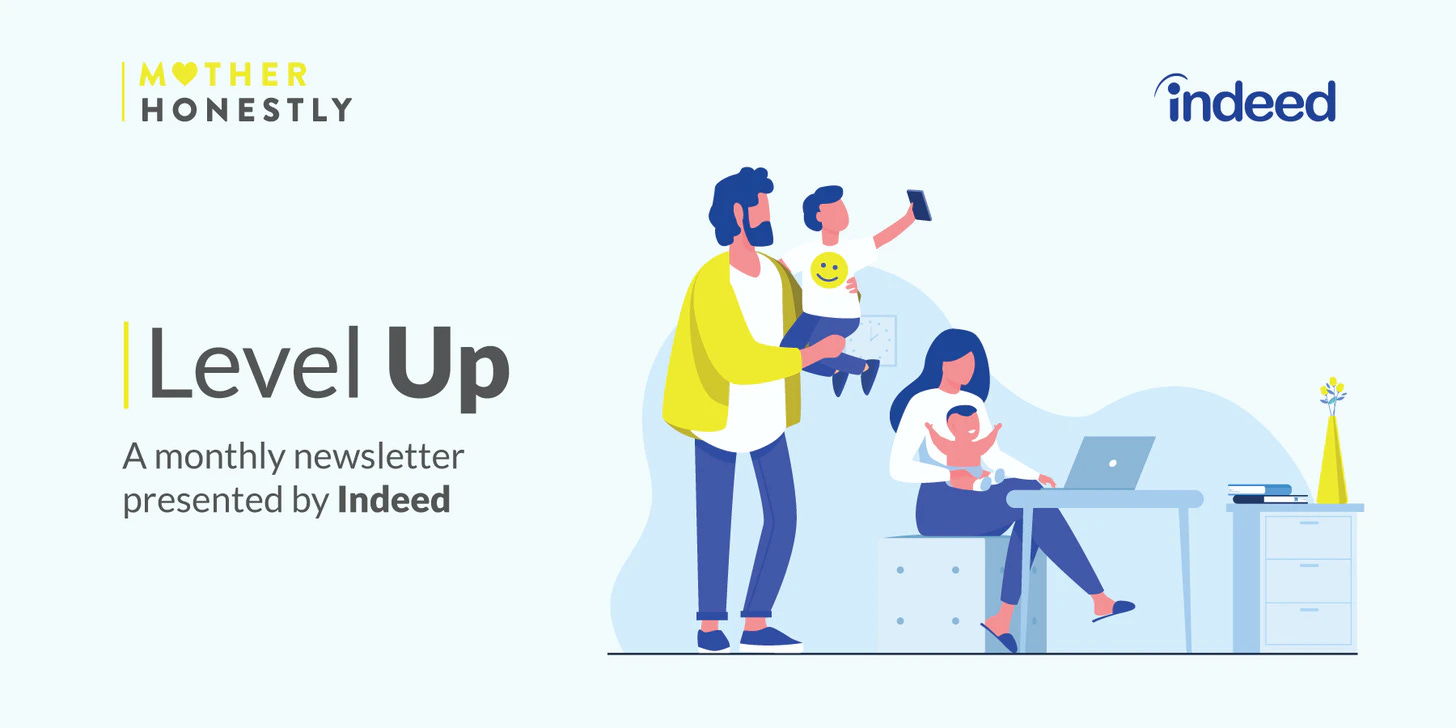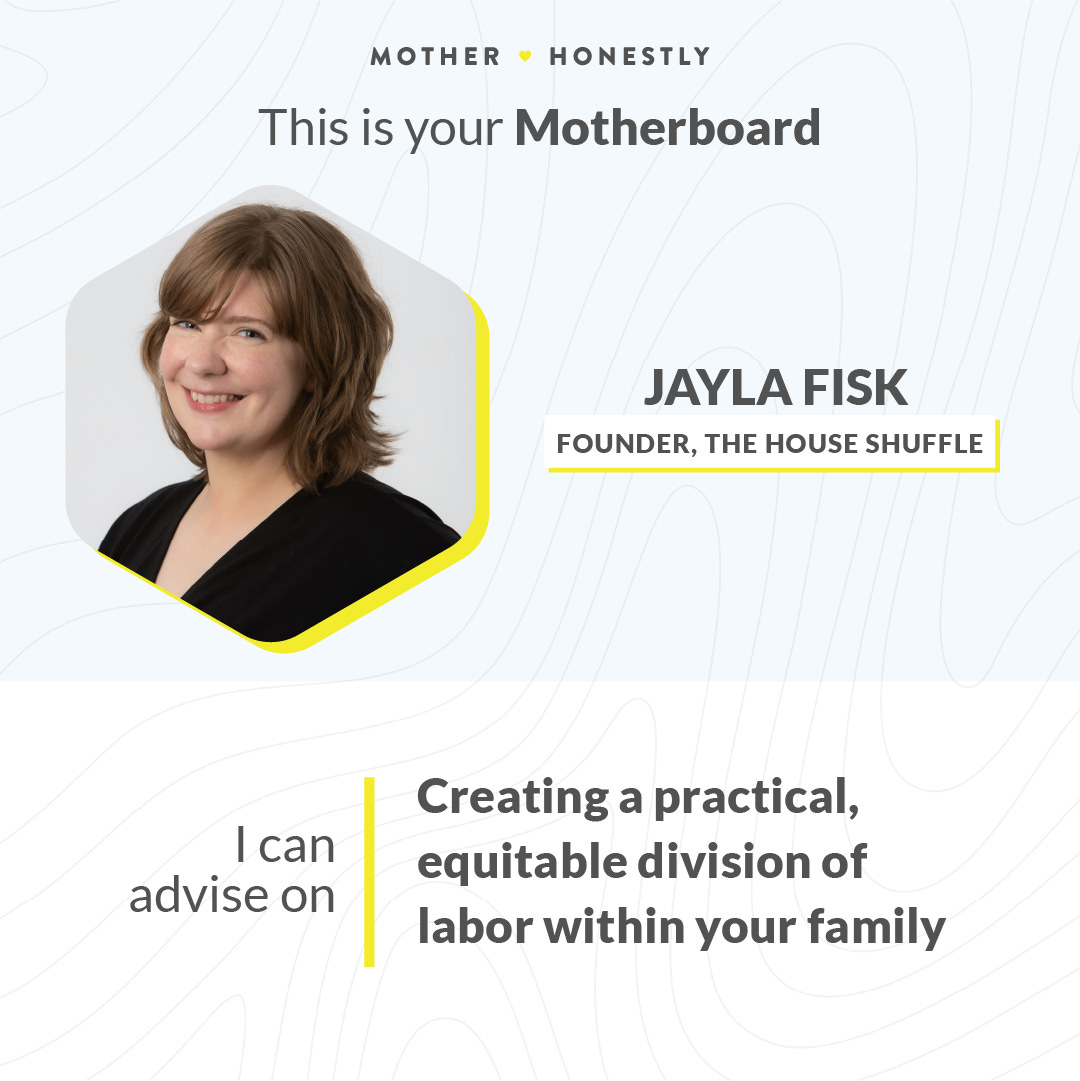Level Up: How to Find Out if a Job is *Really* Good for Working Parents
It's not as easy as it seems.
I once started a new job when my son was 9 months old. During the interview, I was reassured the role was very flexible, and that I would even be able to work from home a few days a week. You probably know where this is going…
A month into the job, I was working far more than 40 hours a week to stay on top of my assignments. The office didn’t have a lactation room, so I breast-pumped in the bathroom. I was the only mom of young children in the entire 50-person company.
I quit after a few months. I now realize I could have saved myself a lot of grief by doing better investigative work during the interview process. Beyond a comfortable breast-pumping space (really, what was I thinking?), there are several other policies and benefits that indicate a company welcomes working parents and caregivers. I should have looked for dependent care coverage, subsidized child care, paid parental leave, elder care compensation, remote work, flexible scheduling and fertility coverage, at a minimum.
But just because a company offers a roster of parent-friendly perks doesn’t necessarily guarantee a parent-friendly culture. After all, many high-profile consulting, law and finance firms offer generous paid leave, but the industries aren’t exactly known for prioritizing work-life balance (unless that balance tilts heavily towards work). Sussing out a company’s culture can be trickier—and culture can vary within an organization, too. Managers still have a lot of power to set the tone for their teams.
So what’s a working mom on the job hunt to do? First, ask if a prospective employer offers an employee resource group (ERG) for parents. These communities can be a great place for caregivers to find support and mentorship—which is why it’s a good sign if a company has one. Speaking of mentorship, ask if the company offers any formal programs to help caregivers move up the ladder. That’s a sign the company serious about retaining women employees. Next, look online to see if it has notched any awards as a parent-friendly workplace.
Still, this is surface-level research. With a little bit of digging, you should be able to discover a lot more. (Don’t make my mistake: Dig!) We asked the experts at Indeed for their top tips on the topic. Here’s what they suggest:
The Fix: 4 Ways to Find Out If a Job Is Parent-Friendly
Balancing work and caregiving is always a challenge, but parent-friendly policies and benefits can make all the difference. While there may not be a perfect situation, some companies really put in the effort to be a great place for parents to work. Before taking a job, it’s important to do your research to find out just how parent-friendly the company really is. Don’t be afraid to ask questions! It’s in your best interest as well as the company’s to get the clearest picture possible before saying yes to a job.
Here are a few tips:
Talk to current employees. You’ll always get the best sense of what a company is really like from people who work there, especially in roles similar to the one you’re considering.
Ask about participation rates. It’s one thing for a company to offer those parent-friendly benefits and another to make the benefits easy to use. Do people use their family leave? How easy is it to get child care subsidies? Does the company actively encourage participation?
Find out if people in management are parents. Like you, other parents and caregivers have firsthand experience with juggling work and home responsibilities. Managers with kids or other dependents are sometimes more accommodating than those without. It’s also a good sign it’s a workplace with a culture and policies that help parents move up the ladder.
Be flexible. Some jobs and roles are more family-friendly than others. It could be a worthwhile trade-off to take a different role from the one you were originally looking for if the hours and benefits fit your needs better.
Thankfully, there are plenty of tools available now to help you research a prospective employer. For example: Indeed features reviews from current employees, Work Happiness scores and a library of articles with useful advice for finding jobs, updating your resume, vetting companies and more. While many companies talk about having parent-friendly policies, it’s a good idea to take some time to verify those claims.
BOOK A 1-ON-1 CONSULTATION:
Jayla is a member of NAPO, the National Association of Productivity and Organizing Professionals and a Certified Fair Play Method Facilitator. She can help you diagnose why your home isn't working for you and with improving your household systems, organization and space planning strategies. Book Jayla today!
GET EXPERT ADVICE:
With an MH All-Access subscription, you get unlimited access to all of our household and workplace toolkits, with step-by-step plans for managing child care, chores and much more. Our partners at Indeed know that women need work, but more importantly that work needs women! That’s why we’ve partnered to make our guide to landing your dream job free for everyone. Download it today!
LEVEL UP YOUR INTERVIEW SKILLS:
We’re partnering with Indeed to ensure that women reentering the workforce or looking to make a change into a new career feel prepared and confident in their interviewing skills.
In August, Indeed will be giving women job seekers the opportunity to meet with the company's recruiters and hiring managers via the Indeed Virtual Interview Platform to get interview tips and tricks, participate in a mock interview to practice sample interview questions, and prepare to get hired for their next great job.
Fill out this quick form to participate—and prepare to enter your next role!
LOVE TO SEE IT
Public investment in child care would save families money and help more than a million women join the labor force. That’s according to a working paper by a team of economists at the National Bureau of Economic Research.
HATE TO SEE IT
The fallout from the end of Roe continues. Experts say there is “no question” maternal mortality will rise post-Roe. Some OB/GYNs are rethinking their careers, or refusing to train in states where abortion is outlawed, exacerbating a growing shortage of doctors. A major health care system said it would no longer provide Plan B at its Missouri locations as a result of the state's law banning nearly all abortions, but it reversed its decision a day later. Now, Amazon and Rite Aid are limiting purchases of the emergency contraceptive after customers are rushing to stock up. A growing number of companies have said they will pay for their employee to travel out of state for an abortion, but legislators in Texas have already threatened Citigroup and Lyft in response to the policy, and experts expect plenty of legal clashes to come.







